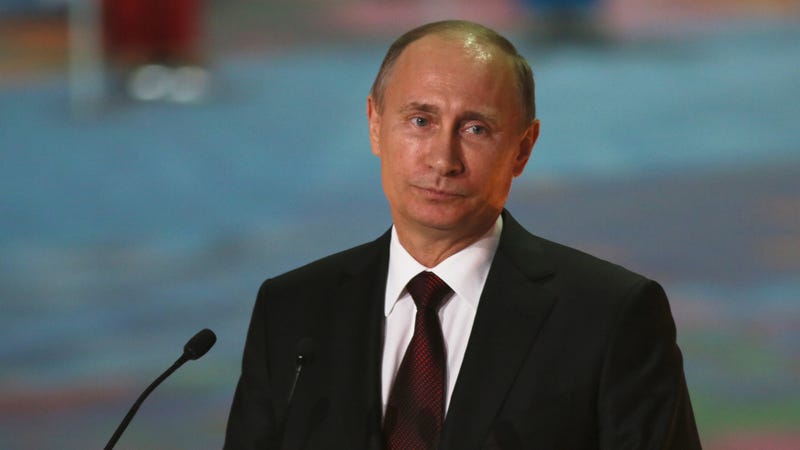 Photo: Getty
Photo: Getty
American political candidates are again being targeted, a Microsoft executive said Thursday, by the Russian intelligence agency formerly known as the GRU.
At the Aspen Security Forum, a gathering of top-level government officials and industry experts, Microsoft’s Tom Burt, vice president for customer safety and trust, said that his team had uncovered evidence that three U.S. candidates running for election in 2018 had been targeted. The attacker, according to Burt, was identified as the advanced persistent threat known to Microsoft as Strontium—though the hackers are more commonly called Fancy Bear, the codename given to them by cybersecurity firm CrowdStrike. (See also: Sednit, Pawn Storm, Sofacy, Tsar Team, Group 74, APT 28, Swallowtail, and Iron Twilight.)
The names of the candidates who were allegedly targeted have yet to be released, but according to Burt, they are individuals who may have piqued Moscow’s interest “from an espionage standpoint, as well as an election disruption standpoint,” he said.
The disclosure follows a whirlwind of Russia-related news that has virtually inundated cable news and social media since July 13, the day a U.S. District Court in Washington, DC, unsealed an indictment charging 12 Russian intelligence officers in absentia with conducting a months-long, covert campaign to undermine the Democratic Party—targeting, among others, then-candidate Hillary Clinton, in an attempt to sway the election in President Donald Trump’s favor, per an assessment long affirmed by the U.S. intelligence community.
That indictment preceded what was easily one of the most ridiculous moments in the history of the U.S. presidency: Trump’s profuse affinity for homophobic Russian autocrat and former KGB officer Vladimir Putin, Russia’s president, prevailing over the advice and recommendations of the numerous U.S. intelligence officials that Trump himself appointed. That preceded several days’ worth of self-contradiction after rank-and-file members of his own party began to air their disgust in televised interviews over his conduct.
Even his attempts to clean up the mess resulted in further confusion and doubt over his position on Russian election interference, whether Putin was directly responsible, and whether it would happen again. (According to a New York Times report published late Wednesday, Trump was shown evidence two weeks before his inauguration, including texts and emails “gleaned from a top-secret source close to Mr. Putin,” that documented the Kremlin-directed cyberattacks.)
By Wednesday, it was patently clear that Trump has placed more trust in the word of the world’s most powerful “street thug”—or has simply decided to believe what he wants, evidence be damned, because it’s politically convenient—than anything he’s heard in year’s worth of classified briefs. And any attempt by his senior advisers to have him correct the record and publicly embrace the notion that Russian did, in fact, target the 2016 election, has been followed by some last minute, ad-libbed comment—a caveat meant to minimize Moscow’s guilty, such as: “Could be other people also. There’s a lot of people out there.”
The president’s attempts to walk back his walk-backs did not go over well with fellow GOP lawmakers. In the end, as Sen. Marco Rubio told Politico, “You can’t force anyone to say what you want them to say, especially the president of the United States.”
Trump is, if anything, his own one-man walking brain trust.
As Politico reported Wednesday, the nation’s ongoing efforts to secure state election systems against foreign cyberattacks or other forms of tampering are slow moving and seem unlikely to be completed before the midterm elections, less than four months away. The five states that rely solely on paperless electronic voting devices have “no plans to replace their machines before the election,” Politico wrote. And fewer than a third of the states have reportedly undergone the security audits offered by the Department of Homeland Security.
The news that security experts have already detected attempts to meddle in the election are neither surprising nor profound. “We have seen Russian activity and intentions to have an impact on the next election cycle,” CIA Director Mike Pompeo told the Senate intelligence committee five months ago. “There should be no doubt,” added Dan Coats, the Trump-appointed director of national intelligence, “that Russia perceives its past efforts as successful and views the 2018 U.S. midterm elections as a potential target for Russian influence operations.”
A week ago, Coats reiterated: “The warning lights are blinking red.”
Trump, meanwhile, doesn’t seem to notice—or care.